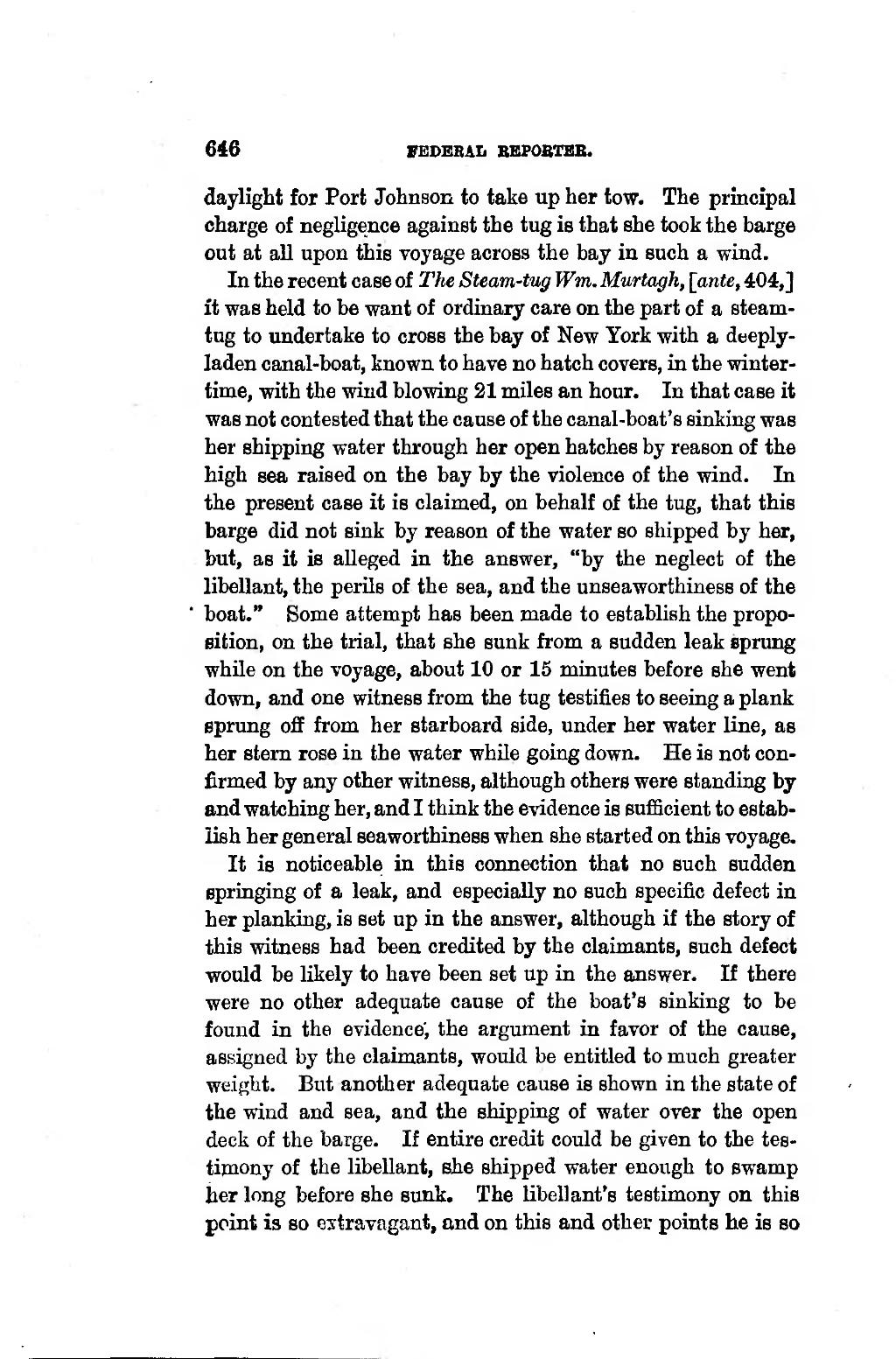6i6 FEDERAL REFOBTEE. �daylight for Port Johnson to take up her tow. The principal charge of negligence against the tug is that she took the barge out at ail upon this voyage across the bay in such a wind. �In the recent case of The Steam-tug Wm. Murtagh, [ante, 404,] ît was held to be want of ordinary care on the part of a steam- tug to undertake to cross the bay of New York with a deeply- laden canal-boat, known to have no hatch covers, in the winter- time, with the wind blowing 21 miles an hour. In that case it was not contested that the cause of the canal-boat's sinking was her shipping water through her open hatehes by reason of the high sea raised on the bay by the violence of the wind. In the present case it is claimed, on behalf of the tug, that this barge did not sink by reason of the water so shipped by her, but, as it is alleged in the answer, "by the neglect of the libellant, the perils of the sea, and the unseaworthiness of the boat." Some attempt has been made to establish the propo- sition, on the trial, that she sunk from a sudden leak sprung while on the voyage, about 10 or 15 minutes before she went down, and one witness from the tug testifies to seeing a plank sprung off from her starboard side, under her water line, as her stern rose in the water while going down. He is not con- firmed by any other witness, although others were standing by and watching her, and I think the evidence is sufficient to estab- lish her general seaworthiness when she started on this voyage. �It is noticeable in this connection that no such sudden epringing of a leak, and espeeially no such specifie defect in her planking, is set up in the answer, although if the story of this witness had been credited by the claimants, such defect would be likely to have been set up in the answer. If there were no other adequate cause of the boat's sinking to be found in the evidence', the argument in favor of the cause, assigned by the claimants, would be entitled to much greater weight. But another adequate cause is shown in the state of the wiud and sea, and the shipping of water over the open deck of the barge. If entire credit could be given to the tes- timony of the libellant, she shipped water enough to swamp her long before she sunk. The libellant's testimony on this point is 80 eitravagant, and on this and other pointa he is so ����
